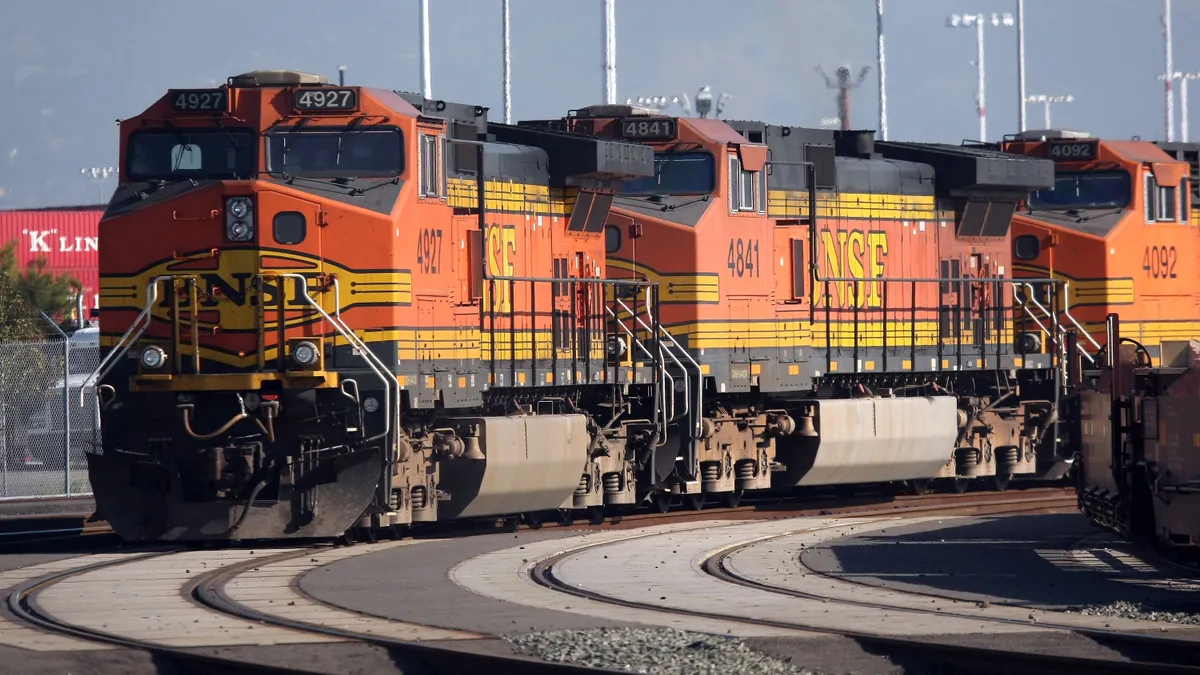Dive Brief:
- The four largest U.S. railroads began limiting service Monday in preparation for a potential strike that stands to halt freight rail movement across the country, presenting a new supply chain-related challenge for contractors and their clients.
- CSX, BNSF and Union Pacific all halted traffic of hazardous materials on Monday due to the threat of “spontaneous labor action,” according to the Association of American Railroad’s list of active embargoes.
- A nationwide rail strike over higher wages would lead to $2 billion in lost economic output per day, according to a report from the AAR, which also noted that construction is one of the country’s critical industries relying on rail transport for materials and other supplies. The list also includes the agriculture, chemical and automotive industries.
Dive Insight:
A rail strike would compound the supply chain woes that contractors have faced since the COVID-19 pandemic began. The AAR report said that builders could expect delays of raw materials including lumber from Canada used for home building and other construction projects.
Railroads have until Friday to reach an agreement with its two of the largest rail unions, the International Association of Sheet Metal, Air, Rail, and Transportation Workers, Transportation Division and the Brotherhood of Locomotive Engineers and Trainmen.
Rail carriers have struck agreements with 10 other unions, announcing new contracts on Sunday with groups representing boilermakers and maintenance employees.
Shippers have called on Congress to intervene in case railroads are unable to reach an agreement before the deadline. The Consumer Brands Association wrote in a letter to President Joe Biden on Friday supporting congressional action to finalize negotiations, saying that a strike would “imperil the availability, affordability and accessibility of everyday essential products.”
“With product availability, inflation and cost challenges continuing to affect American consumers, the supply chains cannot afford another crisis in the form of a freight rail strike,” the group wrote.
Sarah Zimmerman contributed to this report.













